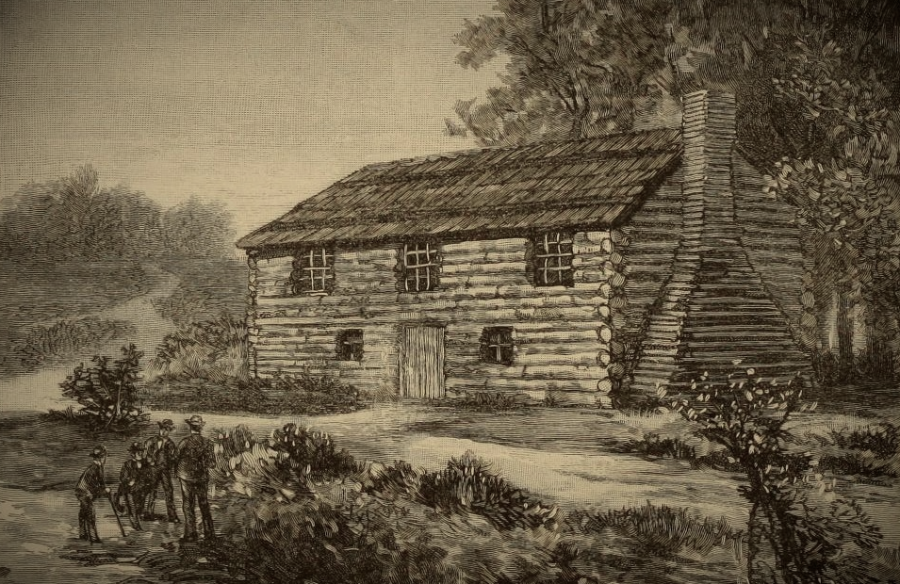Log College Press: One-Stop Shop for Historic American Presbyterianism
Image

By Jonathan Peters
Free Online Library
Inspired by the Post-Reformation Digital Library, Caleb Cangelosi founded Log College Press (LCP) in 2017 while a student at Puritan Reformed Theological Seminary. The purpose of this organization has been to “collect and reprint the writings of and about American Presbyterians from the 18th and 19th centuries.” Thanks to places like Google Books and Internet Archive, Cangelosi and Andrew Myers (his Website Manager) have been able to assemble 21,000 works from 1,900 authors in LCP’s free PDF library. Authors are split between the Main Library and Library Annex, and are arranged alphabetically in each. Separate pages have also been created for Dissertations and Theses, Compilations, Minutes, The Southern Presbyterian Review, A Series of Tracts on the Doctrines, Order, and Polity of the Presbyterian Church in the United States of America, and Secondary Resources.
Reprints
LCP has also reprinted select writings from a handful of historic Presbyterians, including Archibald Alexander, Samuel Miller, Francis Grimké, William Swan Plumer, James Henley Thornwell, Benjamin Morgan Palmer, and Daniel Baker. Copies of these reprints can be purchased directly from LCP or Westminster Bookstore. LCP says that they also welcome suggestions for additional republications.
Dead Presbyterian Society
As the site grew, LCP developed a podcast (no longer active), a blog with 1-2 posts per month, and the Dead Presbyterian Society (DPS). The latter is an exclusive club which can be joined for a nominal monthly or yearly fee. Members receive access to Recent Additions, Early Access, Author Index, Log College Curations (24 re-typed, historic documents in PDF format), Log College Outlines (currently of five select works), Though Dead They Still Speak (a quotations blog with 5 posts per month), Commentaries (arranged by author and book of the Bible), Log College Review (short form scholarship articles), and Topical Pages. The latter (a work in progress) organizes documents into a variety of categories, such as Apologetics, Biographies, Book Reviews, Church and State, Church History, Devotional, Eschatology, Family, Fiction, Funeral Discourses, Missions, Poetry, Systematic Theology, Travelogues, and Worship. LCP is also working on Author Outlines and a Sermon Index.
Merger
At Cangelosi’s recommendation, Greenville Presbyterian Theological Seminary (GPTS) acquired the website in 2023 “to help with growth that he could no longer handle on his own.” Cangelosi and Myers have remained on the LCP staff, but Jonathan Master and Pat Daly are now “steering the ship.” Since the merger, LCP has added webpages for the seminary’s journal (The Confessional Presbyterian) and GPTS Books and Merchandise.
Where to Start
All sorts of people can benefit from accessing LCP, whether they be pastors, historians, Sunday School teachers, or laity, regardless of denominational affiliation. Most LCP authors are clergymen, but there are a number of ladies (Elizabeth Prentiss, Charlotte Forten Grimké, Margaret Junkin Preston, etc.) and non-ordained men from other professions (Cyrus McCormick, Thomas “Stonewall” Jackson, Daniel H. Hill, etc.). Under each LCP author, there is usually a link to a biography (oftentimes Wikipedia), which will give an overview of the person’s life. This can be helpful when trying to determine where a person stood on issues like Old Light vs. New Light, Old School vs. New School, abolitionism vs. pro-slavery, or fundamentalism vs. modernism.
If readers do not know where to begin on the site, LCP has a “Where Do I Start” page, which lists several “worthies” such as Francis Makemie, David Brainerd, Samuel Davies, Gilbert Tennett, John Witherspoon, Charles Hodge, Robert Dabney, B. B. Warfield, and J. Gresham Machen. In an interview in August 2018, Cangelosi also recommended five freebies from the PDF library: Archibald Alexander’s Biographical Sketches of the Founder, and Principal Alumni, of the Log College, William Cato’s A Semi-Centenary Discourse – A History of the First African Presbyterian Church, Philadelphia, and a Brief Notice of Rev. John Gloucester, Henry Alexander’s Southern Presbyterian Leaders, Plumer’s Commentary on the Psalms, and Stuart Robinson’s Discourses on Redemption. Many of the Presbyterian classics published by Banner of Truth and Sprinkle Publications likewise can be accessed for free in LCP’s PDF library.
LCP’s PDFs can be downloaded to an eBook reader for desktop, phone, or tablet reading. Depending on what process was used during the original digitization, some of the PDFs have Optical Character Recognition (OCR), allowing readers to do a word search within a downloaded document. LCP would profit, though, from adding a search engine on its site for keyword, title, and author queries across the entire library. Researchers then could search through multiple books at one time.
Conclusion
LCP is an outstanding resource for historic American Presbyterianism. After browsing the site, serious students will want to subscribe to DPS to obtain all the membership perks, while casual readers will continue to return for the free offerings which interest them. Many may hope that other Protestants (Baptists, Methodists, etc.) will follow LCP’s lead and create similar collections for their respective denominations.
Jonathan Peters serves as an administrative assistant at Reformation Bible Church and Harford Christian School (Darlington, MD).
- 1624 views
It looks like the website is set up in such a way that one can effectively perform limited metadata (e.g., author, title) searching via your browser. For example,
Hodge AND "biblical literature" site:logcollegepress.com
However, it would be really nice if a means could be provided to also search through the pdfs. Otherwise, if I'm doing topic-oriented historical research, then my first recourse will still be archive.org, hathitrust.org, loc.gov, early english books online, google books, google scholar, etc. Some of these even offer an ability to search within pdfs, which is the holy grail for researchers.
atrustworthygospel.com



Discussion